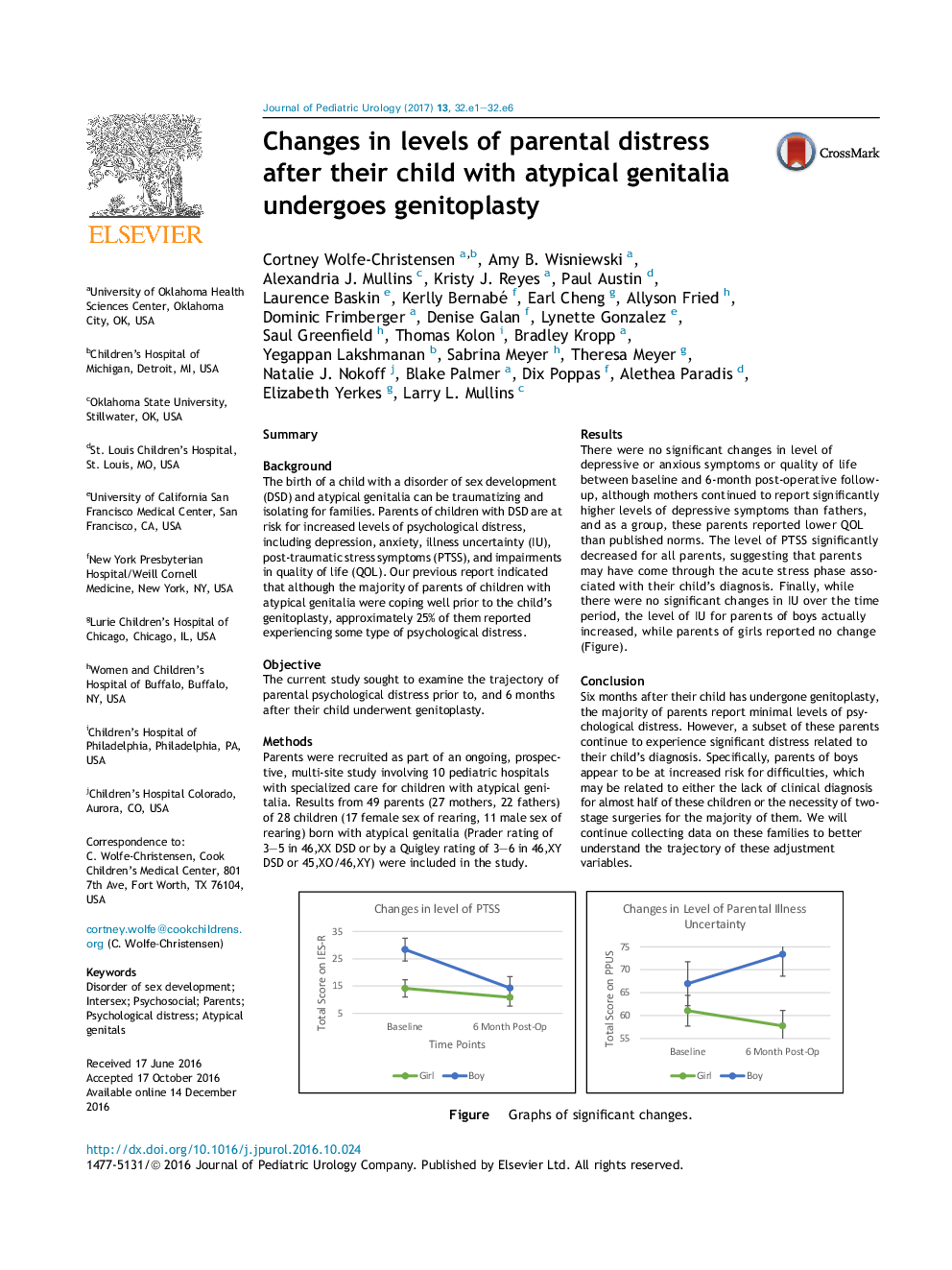| کد مقاله | کد نشریه | سال انتشار | مقاله انگلیسی | نسخه تمام متن |
|---|---|---|---|---|
| 5718636 | 1411255 | 2017 | 6 صفحه PDF | دانلود رایگان |
SummaryBackgroundThe birth of a child with a disorder of sex development (DSD) and atypical genitalia can be traumatizing and isolating for families. Parents of children with DSD are at risk for increased levels of psychological distress, including depression, anxiety, illness uncertainty (IU), post-traumatic stress symptoms (PTSS), and impairments in quality of life (QOL). Our previous report indicated that although the majority of parents of children with atypical genitalia were coping well prior to the child's genitoplasty, approximately 25% of them reported experiencing some type of psychological distress.ObjectiveThe current study sought to examine the trajectory of parental psychological distress prior to, and 6 months after their child underwent genitoplasty.MethodsParents were recruited as part of an ongoing, prospective, multi-site study involving 10 pediatric hospitals with specialized care for children with atypical genitalia. Results from 49 parents (27 mothers, 22 fathers) of 28 children (17 female sex of rearing, 11 male sex of rearing) born with atypical genitalia (Prader rating of 3-5 in 46,XX DSD or by a Quigley rating of 3-6 in 46,XY DSD or 45,XO/46,XY) were included in the study.ResultsThere were no significant changes in level of depressive or anxious symptoms or quality of life between baseline and 6-month post-operative follow-up, although mothers continued to report significantly higher levels of depressive symptoms than fathers, and as a group, these parents reported lower QOL than published norms. The level of PTSS significantly decreased for all parents, suggesting that parents may have come through the acute stress phase associated with their child's diagnosis. Finally, while there were no significant changes in IU over the time period, the level of IU for parents of boys actually increased, while parents of girls reported no change (Figure).ConclusionSix months after their child has undergone genitoplasty, the majority of parents report minimal levels of psychological distress. However, a subset of these parents continue to experience significant distress related to their child's diagnosis. Specifically, parents of boys appear to be at increased risk for difficulties, which may be related to either the lack of clinical diagnosis for almost half of these children or the necessity of two-stage surgeries for the majority of them. We will continue collecting data on these families to better understand the trajectory of these adjustment variables.173Figure. Graphs of significant changes.
Journal: Journal of Pediatric Urology - Volume 13, Issue 1, February 2017, Pages 32.e1-32.e6
